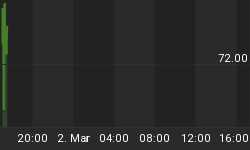We have been asked whether South African gold shares remain a good investment? Our stock answer will be from now on, yes, in the longer term. How could we say that when it is becoming apparent to all that the political and economic climate of South Africa is decaying and looks likely to continue to decay as far as one can see ahead?
Take a look at Randgold Resources. Many think this is a South African company, but it is not. It is active in Mali and West Africa, two thoroughly African economies with all the negatives that Africa brings with it. And yet the company is successful and has the competance to remain so, because of its management and their ability to overcome "African problems".
What are these problems that make that continent so different? Primarily it is the inability to provide reliable infrastructure in the form of reliable electricity, water and sometimes roads. Apart from that, Africa, like other poorer countries, has governments, who believe that although they could not possibly bring resources out of the ground themselves, believe they have a right to a good portion of the profits, if not to the entire mine, once in production. This points the way to difficulties down the road for such companies. So how does Randgold Resources do so well?
Firstly, it is because it accepts that these problems are part of life on the continent and must be overcome by the mining company itself. It does not have an attitude of reliance on government run and built infrastructure. It is in a position to provide these for itself, treating any infrastructure already available, as a bonus. As a result it can only blame itself for any shortcomings and then overcomes these, itself.
And South Africa, what's the problem there?
South Africa in the past had a well developed infrastructure that was professionally planned built and run, then this stopped and we have witnessed the first of the problems of African decay, namely insufficient electricity to run present, let alone future, requirements of the mining industry as well as everybody else there. The mining companies had learned to depend on the reliability of these supplies so much, they were caught by surprise when the decay reached them. Now they are rushing to ensure initially partial reliance on themselves to shore up the early shortfalls of electricity supply. Eventually no doubt they will ensure toatal self-reliance so that if South Africa were to drop to the level of their sub-Saharan neighbours, the mines like Randgold Resources, would have adjusted their resources and supplies of all sorts, to a self-sufficient or alternative source base. And let's be very clear on one point, South Africa has amongst the world's most competent, self-reliant, tough and innovative of miners on this planet.
A classic example of this has been shown by Goldfields, who have just announced that they would spend a total of R200 million ($25.52 million) to install emergency power supply to be able to withstand a total power blackout at its mines. Gold Fields said it planned to install the equipment by year-end to generate 50 megawatts of electricity in case the country faced a national power blackout. The equipment had been purchased and was being tested in the U.K.
However, it will take some time before the full adjustements are made to achieve such independence as Randgold has on all the mines, but it will come.
So why do we have longer term faith in South African mining companies as investments? Take a mine like Goldfields [that has just seen the departure of its CEO Ian Cockerill to balcker, coal pastures encompassing perhaps a better near term future for that company [Amcoal], than more difficult and expensive deep level gold mines], which has the most gold resources of any gold mine we know, with perhaps more than a 55-year life. But half its electriity is used to keep the mine workable and the other half to produce gold, so it suffered this year at the hands of Escom, the local electricity supply monopoly. Not only will it take some time for the company, through its other mine, Kloof to bring these resources in to full production, but it will now have to develop a far greater self-sufficiency in all fields where they are dependent, at the moment, on government supplies. We believe that at great cost and in time it will get there and be able to produce gold at a good profit from then onwards. It will also harness the abilities of its management in applying themselves to these new conditions and techniques to ensure far more production per $ invested.
Meanwhile the share price has dropped back considerably to reflect the "Africanization" process, providing a good entry point where dividends will be higher than their peers overseas. As these adjustments are made, so we feel the company will rise in price to reflect this, lowering the dividend yield. Consequently, Total Returns, over the medium to long-term will prove extremely attractive to long-term funds such as Pension Funds. The company continues to be a growth company in South Africa and aims to achieve 50% of its cash flow outside South Africa still.
If it should eventually succeed in relocating to somewhere like Denver, as per earlier plans, it will also be able to see a much greater appreciation of its efforts and future in its share price, giving one the basis for a long-term growth company producing a commodity whose price is sure to rise considerably in time. It reputation and current competance level will ensure an easy access to future capital too.
Subscribers will be briefed again on this subject in our weekly newsletter. For our regular weekly newsletter, please visit www.GoldForecaster.com.















